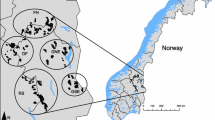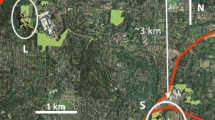Abstract.
The spatial distribution of individuals fits an ideal despotic distribution (IDD) model when some individuals prevent others from settling in a high-quality habitat, so that the last group of individuals is forced to use lower-quality habitats in which their fitness is lower. A critical assumption of the IDD model is that individuals using the lower-quality habitats must have attempted to settle first in the better habitats, but this has seldom been demonstrated. We tested key assumptions of the IDD model by using long-term data on choice of breeding sites by greater flamingos (Phoenicopterus ruber) in southern Spain, where these birds breed at Fuente de Piedra lake (FP) and the Guadalquivir marshes (GM). Based on the accessibility of terrestrial predators to breeding sites, the FP colony was of better quality than the GM colony. As expected from an IDD model, the flamingos settled first at FP than at GM. The order of settlement was probably not affected by differences in food availability between sites, since in most years, the flamingos breeding in FP obtained food in GM during the chick-rearing period, once the FP lake dried up. Furthermore, breeding success was much higher at FP than at GM. Another assumption of the model is that individuals are omniscient and that they should try to settle first in the best site. We recorded 18 individually marked flamingos prospecting for nest sites in FP in a season, when many birds had already settled in this colony. The same individuals were subsequently recorded breeding in the same season in GM, indicating that they had previous information on the availability of sites on which to breed. A third assumption of the IDD model is that as the density increases in a given habitat, the fitness of individuals should decrease. In accordance with this, we found a strong effect of bird density on egg losses. The individuals that were recorded prospecting for sites in FP and that later bred in GM were younger than flamingos that were breeding in FP. We suggest that age-related behavioral dominance may be a mechanism responsible for this despotic distribution.
Similar content being viewed by others
Author information
Authors and Affiliations
Additional information
Electronic Publication
Rights and permissions
About this article
Cite this article
Rendón, M.A., Garrido, A., Ramírez, J.M. et al. Despotic establishment of breeding colonies of greater flamingos, Phoenicopterus ruber, in southern Spain. Behav Ecol Sociobiol 50, 55–60 (2001). https://doi.org/10.1007/s002650100326
Received:
Revised:
Accepted:
Issue Date:
DOI: https://doi.org/10.1007/s002650100326




